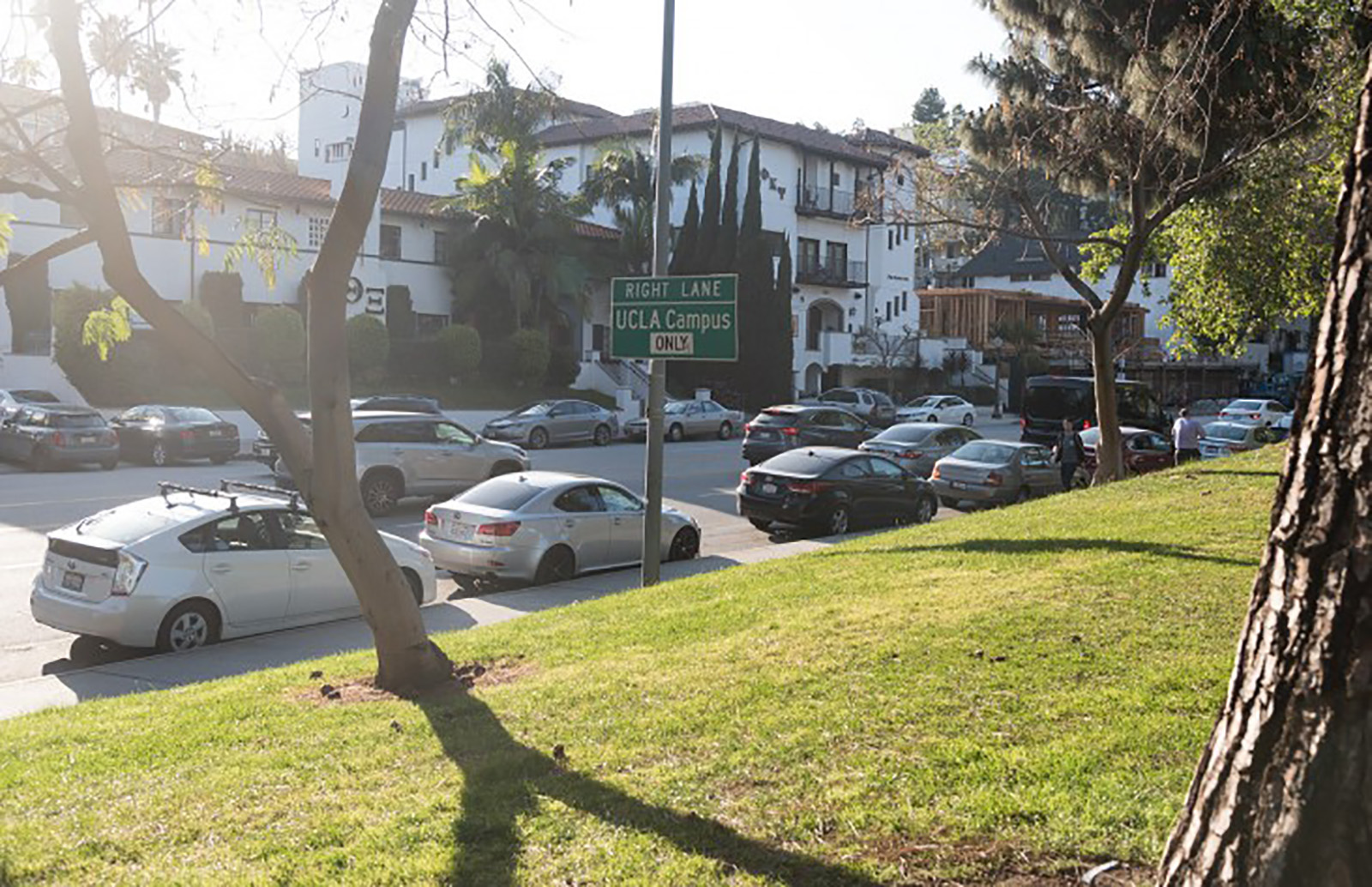It is necessary that UCLA implement more effective sexual violence education

In light of the uptick in reported incidents of rape in on-campus student housing facilities between 2017 and 2018, UCLA Housing and Residential Life must provide better prevention education measures for residents. (Daniel Leibowitz/Daily Bruin senior staff)

By Sabrina Huang
May 20, 2020 4:18 p.m.
This post was updated May 20 at 6:12 p.m.
Empty promises are nothing new for the nation’s premier public university.
Diversity initiatives have done little to increase minority representation in faculty over the last decade. Administrators have made little to no mention of a hostel for students experiencing housing insecurity since the beginning of January. Zero-waste sustainability goals have fallen short as a result of institutional obstacles.
The list goes on.
And unfortunately for students, physical safety may just be one more failed promise to add to that list.
According to the 2019 UCLA Annual Security & Fire Safety Report, UCLA saw a 74% increase in reported cases of rape on or surrounding campus property between 2017 and 2018. Of the 54 cases in 2018, 29 occurred in on-campus student housing facilities. Under the Clery Act, UCLA defines on-campus student housing facilities as residential dorms on the Hill and select apartments in Weyburn Terrace. These facilities are owned by the university, making it all the more worrisome that incidents of rape have risen. 2018 marked around a 140% increase in such reports since the previous year.
Unlike events that may occur in fraternity and sorority houses, there is no legal gray area – UCLA is clearly responsible for what happens to students on its property.
Although most students who were living on the Hill have moved off campus as a result of the COVID-19 pandemic, sexual violence is an issue the university needs to act on now more than ever. On May 6, Secretary of Education Betsy DeVos announced changes to Title IX guidelines that many fear will discourage survivors from seeking legal recourse.
In light of these alarming events, UCLA Housing and Residential Life must take a more active stance in promoting education about rape and prevention in on-campus housing facilities. This means directly connecting students with on-campus resources, mandating consent workshops for all residents and expanding sexual violence education programming. The university is responsible for its students’ safety – institutional negligence should not get in the way of providing residents the security they need. And in a time when the rights of survivors have never been more limited, these basic preventative initiatives are the least UCLA can provide.
But at the moment, the university appears content in its lackluster attempts to educate students about sexual violence.
UCLA first introduces students to Campus Assault Resources & Education and the Title IX offices on the last day of summer orientation. However, these sessions are not designed for students to retain information about consent and sexual violence, said Ko Smaoui, a third-year physics student and CARE peer educator.
First, students are in a room with hundreds of other students. Smaoui said in order for consent workshops to be effective, they must be offered in small groups of around 20 to 30 people so participants can engage with the material.
Orientation is also a time when students may be preoccupied with navigating campus and registering for classes.
“You’re bombarded with so much information about the university,” Smaoui said. “You know nothing about UCLA, (so) you’re obviously not going to be in the best place to really take all of it in.”
Incoming students are also required to take an online module for sexual violence and assault. While this course allows students to learn content at their own pace, it is a sorry substitute for what needs to be in-person workshops that give students the space to learn about a topic that requires undivided attention. The module is not only tedious for students to complete – it also saves vital information on campus resources for the very end.
There are currently no mandatory sexual violence education workshops for students who reside on the Hill or in university apartments, Smaoui said. While many resident assistants invite CARE office staff members to give workshops on consent, these events are often optional for residents. This means for the thousands of students who live in on-campus housing facilities, orientation may be the last time they hear about sexual assault from the university.
Regular exposure, however, is key to awareness, and awareness is crucial to utilizing resources. Third-year human biology and society and public affairs student Atreyi Mitra, who is currently researching barriers to accessing the CARE office, said there is a general lack of awareness about on-campus resources. For example, some students believe the CARE office, which is now on the A level of Murphy Hall, is still in John Wooden Center West.
“You can’t use the resource and you can’t receive further prevention education if you don’t know about it,” Mitra said.
University housing facilities offer the perfect opportunity to educate students about sexual violence. With communities aimed at acclimating students to the campus environment, UCLA Housing and Residential Life play crucial roles in informing residents about consent and raising awareness of campus resources.
Because for student survivors such as second-year public affairs and Spanish and community and culture student Delaney Ivey, the reporting process is difficult enough without having little to no awareness of available resources. Education and prevention measures are critical.
“It comes down to putting survivors’ voices first,” said Ivey, who is also the co-founder of the UC Coalition for Reproductive Justice, an organization that advocates for the provision of rape kits in on-campus health facilities. “I think that a lot of empathy is generated when people actually hear from survivors.”
It is true that the rise in reported incidents of rape may be a function of increased sexual violence awareness among students. Even if it is, the fact that these incidents still occur on campus is cause for alarm. And at the end of the day, the CARE office itself faces institutional obstacles to serving students. Between 2017 and 2018, there were only two CARE advocates for a total of 770 clients, Mitra said. While these systemic changes will require significant levels of funding, short-term solutions that increase preventative measures in on-campus housing facilities will come at little to no cost.
Students, after all, deserve no less from a university they are paying thousands of dollars each quarter to attend.
As for UCLA, their list of empty promises must stop here.


